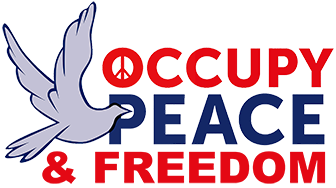In a superseding indictment, the Justice Department charged WikiLeaks founder Julian Assange with 17 charges of violating the Espionage Act.
The Justice Department has relied upon the Espionage Act to target whistleblowers for unauthorized disclosures of information. It has treated journalists as if they were co-conspirators when prosecuting cases. But up until now, the United States government refrained from charging journalists with any crimes for publishing classified information.
“For the first time in the history of our country, the government has brought criminal charges against a publisher for the publication of truthful information. This is an extraordinary escalation of the Trump administration’s attacks on journalism, and a direct assault on the First Amendment,” declared Ben Wizner, the director of the American Civil Liberties Union’s Speech, Privacy, and Technology Project.
Wizner added, “It establishes a dangerous precedent that can be used to target all news organizations that hold the government accountable by publishing its secrets. And it is equally dangerous for U.S. journalists who uncover the secrets of other nations. If the U.S. can prosecute a foreign publisher for violating our secrecy laws, there’s nothing preventing China, or Russia, from doing the same.”
Indeed, the indictment [PDF] invokes an executive order that applies to the classification of information. It states, “At no point was Assange a citizen of the United States nor did he hold a United States security clearance or otherwise have authorization to receive, possess, or communicate classified information.”
Prosecutors are clearly imposing a secrecy law on a non-US publisher. Although U.S. journalists without security clearances regularly publish reporting dependent on classified information from unnamed sources or obtained documents, the government criminalizes this common practice.
Assange was expelled from the Ecuador embassy in the United Kingdom on April 11. British authorities dragged him out of the embassy into a police van. He was jailed at the Belmarsh prison, and police said they arrested him because the U.S. government sought his extradition.
An indictment charging Assange with conspiracy to commit computer intrusion was made public. Much of the media coverage at the time foolishly suggested the Justice Department largely avoided press freedom issues by narrowly charging him with “hacking.” But what many in the media overlooked was how the single charge was an Espionage Act charge disguised as a charge of violating the Computer Fraud and Abuse Act (CFAA).
With the superseding indictment, all illusions are dispelled. Barry J. Pollack, defense attorney for Assange, stated, “The fig leaf that this is merely about alleged computer hacking has been removed. These unprecedented charges demonstrate the gravity of the threat the criminal prosecution of Julian Assange poses to all journalists in their endeavor to inform the public about actions that have been taken by the U.S. government.”
The U.S. government charged Assange with: one count of conspiring to violate the Espionage Act; three counts of violating a provision of the Espionage Act that targets individuals who obtain information they’re not authorized to receive; and four counts of violating a provision of the Espionage Act in which prosecutors allege Assange “solicited” information.


Recent Comments